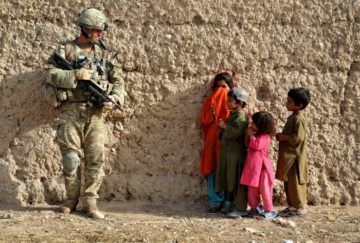 Faisal Devji in Boston Review:
Faisal Devji in Boston Review:
“The idea that we’re able to deal with the rights of women around the world by military force is not rational.” This single sentence from President Biden’s ABC interview with George Stephanopoulos on August 18 exposed the paradox of humanitarian intervention. It acknowledged that trying to address violence with violence only serves to perpetuate it. Much commentary on the West’s two decades of intervention in Afghanistan assumes that Western humanitarianism masked political aims or was subordinated to them. But Biden seems to recognize that humanitarianism, far more than politics, justified, legitimized, and, indeed, required violence.
When the imagined violence that provoked mass evacuations as the Taliban entered Kabul on August 15 at first failed to materialize, it was willed into being by rumour and hysteria. The international media tended to every report of violence across the country after largely ignoring the torture, rape, massacres, and other war crimes committed by Western armies and their allies as well as by the Taliban, Al-Qaeda, and ISIS over the past twenty years. The final humanitarian act of the departing coalition, the evacuation of “vulnerable” Afghans, had to be justified by the threat of violence, which eventually came on August 26 with ISIS suicide bombings at the airport.
Even as Biden promises to forsake humanitarian interventions for political interests, he is still drawn back to the scene of cruelty that defines the former. But to abandon humanitarianism for politics is not to sacrifice compassion for calculation. In modern times, after all, politics has become the most important site to claim human freedom and equality. When we subordinate politics to humanitarianism, we inevitably displace the goal of freedom to a future that can only be achieved once the problem of violence has been resolved. This was also the logic of colonialism, whose subjects were perceived as unready for independence because of the cruelties they suffered and inflicted upon one another.
More here.
